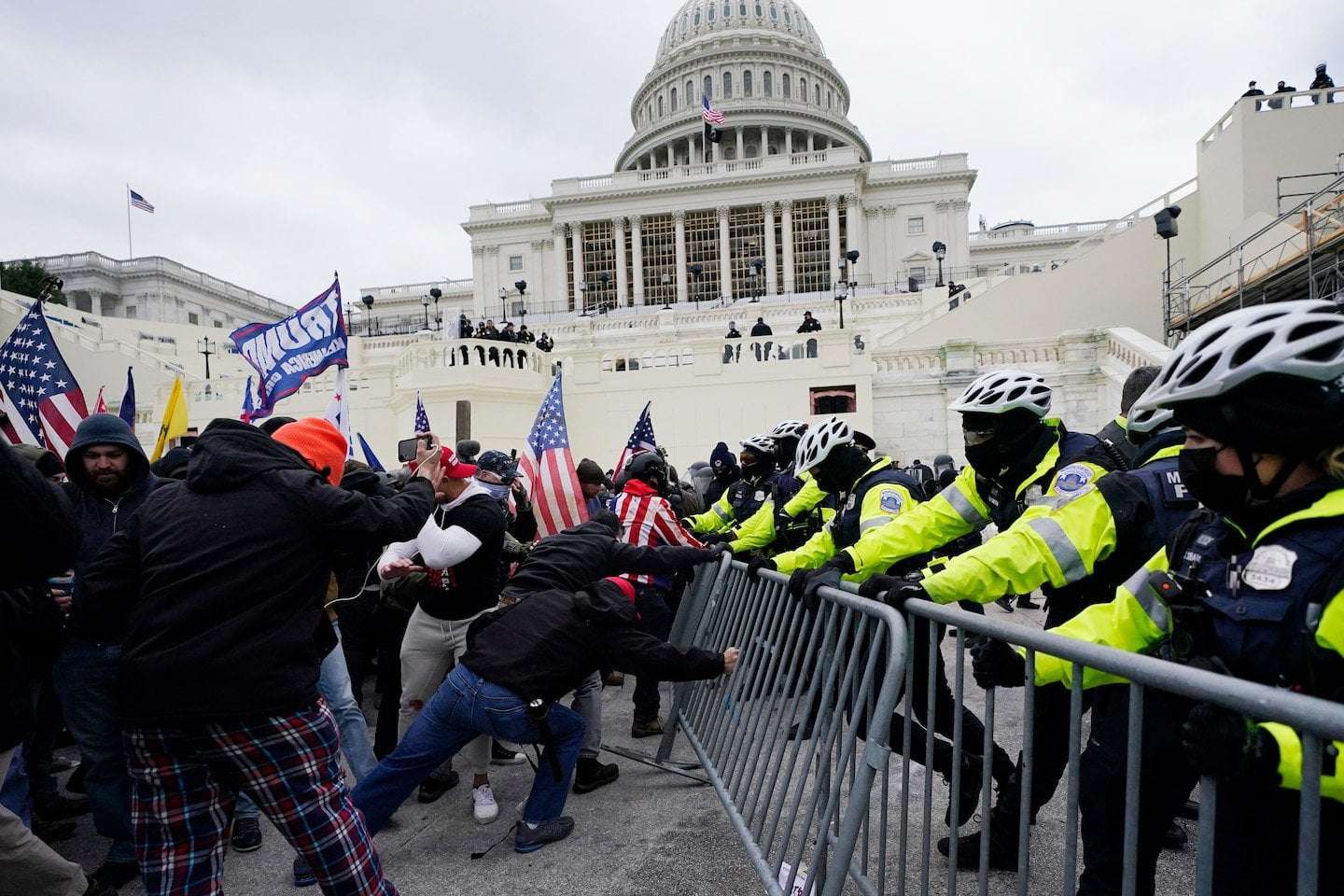Listen Comment on this story Comment Gift Article Share
There is virtually no democratic value that Donald Trump has so assiduously challenged as the rule of law. He has repeatedly tried and failed to thwart court action against him by invoking “absolute immunity.” Last week, the Justice Department soundly rejected Trump’s claim, and it could have serious implications for potential criminal charges against the former president.
The department in a brief urged the U.S. Court of Appeals for the D.C. Circuit to reject Trump’s claim of absolute immunity in a civil suit against him for damages arising from the Jan. 6, 2021, insurrection. “Speaking to the public on matters of public concern is a traditional function of the Presidency, and the outer perimeter of the President’s Office includes a vast realm of such speech,” the brief acknowledged. “But that traditional function is one of public communication. It does not include incitement of imminent private violence of the sort the district court found that plaintiffs’ complaints have plausibly alleged here.”
The brief also hinted at the department’s possible stance for speech or conduct that did not carry the imminent threat of violence: “There may also be circumstances in which a President acts purely in his private capacity as a candidate for office even though he is speaking to the public about matters of public concern,” the Justice Department wrote.
That might include actions such as enlisting phony electors to overturn election results or pressuring the Justice Department to declare an election was fraudulent. It might also extend to strong-arming the vice president to disregard his oath and throw out electoral votes for the rightful winner of the presidential election.
Follow Jennifer Rubin 's opinions Follow
The Justice Department’s position might be seen as a partial walk-back of its widely criticized decision that Trump’s allegedly defamatory comments about E. Jean Carroll, who accused Trump of sexual assault, fell within the scope of his presidential duties and therefore deserved a defense from the Justice Department. (Trump has denied Carroll’s allegations.)
If the Justice Department had taken that same approach in the civil case against Trump, Brookings Institution senior fellow Norm Eisen, who served as co-counsel for the House Judiciary Committee during Trump’s first impeachment, tells me, “It would have created a problem for future potential criminal prosecutions of Trump, starting with Georgia.” Instead, the Justice Department came around to a more circumspect view of the legitimate scope of presidential conduct. This is all for the better.
The Justice Department’s position has important implications. If the department does not consider Trump’s actions subject to an absolute-immunity defense in a civil case, it should have no problem taking the same position in a criminal case, if the law and facts warrant. The events that took place on Jan. 6 and in the days leading up to the insurrection might provide the basis for criminal charges against Trump, such as conspiracy to defraud the United States or to obstruct an official proceeding.
Moreover, the Justice Department’s brief suggests Trump will find strong pushback should his legal team try to remove a potential criminal case filed in Georgia to a federal court. While Section 1442(a) of Title 28of the U.S. code allows a defendant to move from state to federal court if he or she is (or was at the time of the alleged offense) an officer of the U.S. government, that removal can be obtained only “for or relating to any act under color of such office.” Therefore, if Trump is determined to have acted beyond the confines of his job on Jan. 6, it follows that the Justice Department and Fulton County prosecutor Fani Willis could make a strong stance to keep his case in state court (with a much more favorable jury pool).
The U.S. Court of Appeals for the D.C. Circuit must still rule on the matter, but the department’s view will carry great weight. Simply put, the Justice Department came down on the side of limiting the scope of what can be considered official presidential duties. In doing so, it has furthered the principle that the president is no king whose actions are beyond the reach of criminal law.

YOLOSwag42069Nice on March 6th, 2023 at 03:13 UTC »
I would prefer the DOJ actually arrest him for the multiple felonies he has committed.
amiatthetop4 on March 6th, 2023 at 02:47 UTC »
Nothing scares him because he hasn't faced any consequences. What should scare us is half the population still says, yeah we like that guy.
409024072546630 on March 6th, 2023 at 01:56 UTC »
trump will be scared once in of these legal cases or suits against him succeeds. So far this slippery orange pig has slipped out of almost everything.
I hope the civil lawsuits have an impact.